Take a look at the intentional structure of an Outward Bound LGBTQ+ expedition that creates space for connection and community-building among peers.
Ideally, an Outward Bound course is an experience of building the world we want to live in. That world-making may take place with just a dozen other people, over a limited set of days or weeks or months, living in weird and new ways in forests or deserts, or on rivers, lakes and oceans. But the goal is that the relationships that develop among a crew on expedition allow us a peek into how it feels to live with the kind of community we long for. This aim is truer than ever on Outward Bound’s courses for LGBTQ+ teens currently offered in North Carolina, California and the Pacific Northwest.
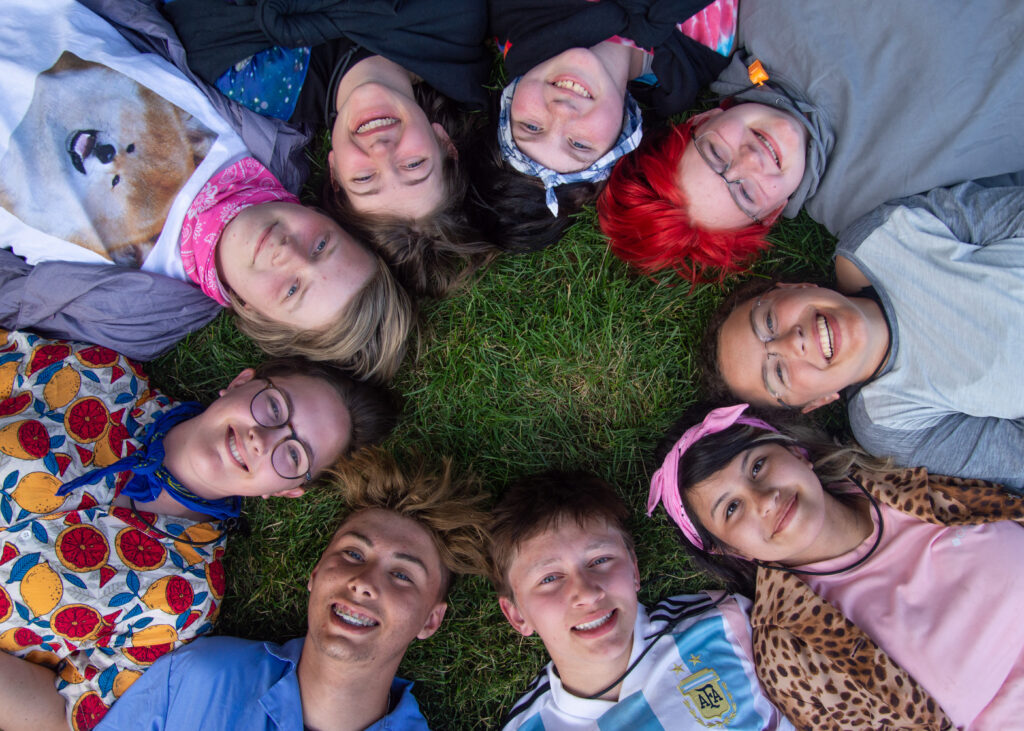
Photo by Colby Blue
Outward Bound LGBTQ+ Outdoor Expeditions
LGBTQ+ courses welcome a community of students who identify as Lesbian, Gay, Bisexual, Transgender and/or Queer, and who specifically choose to join a crew with a community of students who identify in the LGBTQ+ spectrum. Whitnee Goode, a Course Instructor with Outward Bound in the Pacific Northwest, described the first LGBTQ+ course in 2019 to be run out of the Oregon base, as a career highlight. Prior LGBTQ+ courses had been run out of California. “I was really honored to be part of it,” Whitnee said. The students that formed the crew came from all parts of the U.S. and held in common a dedication to building community together.
“Their connection had been unleashed and they were soaking up every bit of it.”
Same Practices, New Meanings
Common Outward Bound expedition practices took on new meanings on the course. At a morning meeting, the crew shared their pronouns every day. This created a welcoming space for folks to try out something new, for example, a name change or different pronouns, in a safe environment. Evening meetings, a time for the crew to reflect and debrief on the day, often went long as the crew loved to improve and analyze their community formation. “Their connection had been unleashed and they were soaking up every bit of it” Whitnee observed. One student on the course reflected, “The LGBTQ+ course allowed me to not be concerned that my identity could pose an issue. My best memories from the trip were not even LGBTQ+ related, rather just knowing that the course was a safe space.”
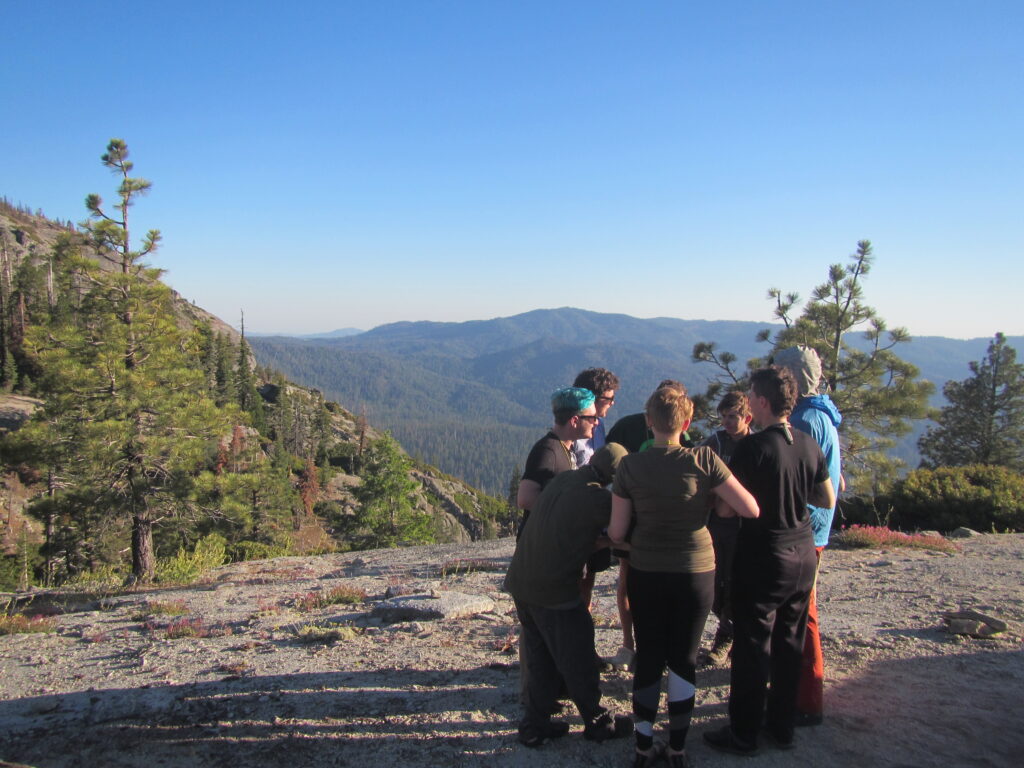
The first days of the course included a challenge course element and a special focus on student care. This transition gave the group space and time to adjust before heading into the backcountry. The Instructors took care to set up changing areas and a drying line for keeping chest binders clean and dry in the wilderness. Instructors checked in with students individually every day and facilitated managing student medications and health in the backcountry.
Tools for Belonging
Whitnee described that on this course, the teaching went beyond the expedition skills of rafting and beyond the teamwork, leadership and communication skills Outward Bound courses are known for. The Instructors created a progression of the modified Hero’s journey—the Queero’s Journey! The teaching included lessons on a range of LGBTQ+ topics, including, for example, The Stages of Queer Self-Acceptance. The Instructors also used tools to intentionally support belonging.
For example, the crew was organized into different groups each day in which they had roles and duties to fulfill. This created both a daily sense of purpose and teamwork. The group played games during daily travels that gave each crew member a chance to answer a shared question, allowing for tight bonds to form. “A high point in the course for me was our last night on the river,” a student reflected. “Due to clear skies, we all camped outside and stargazed for a while. Truly one of my best memories.”
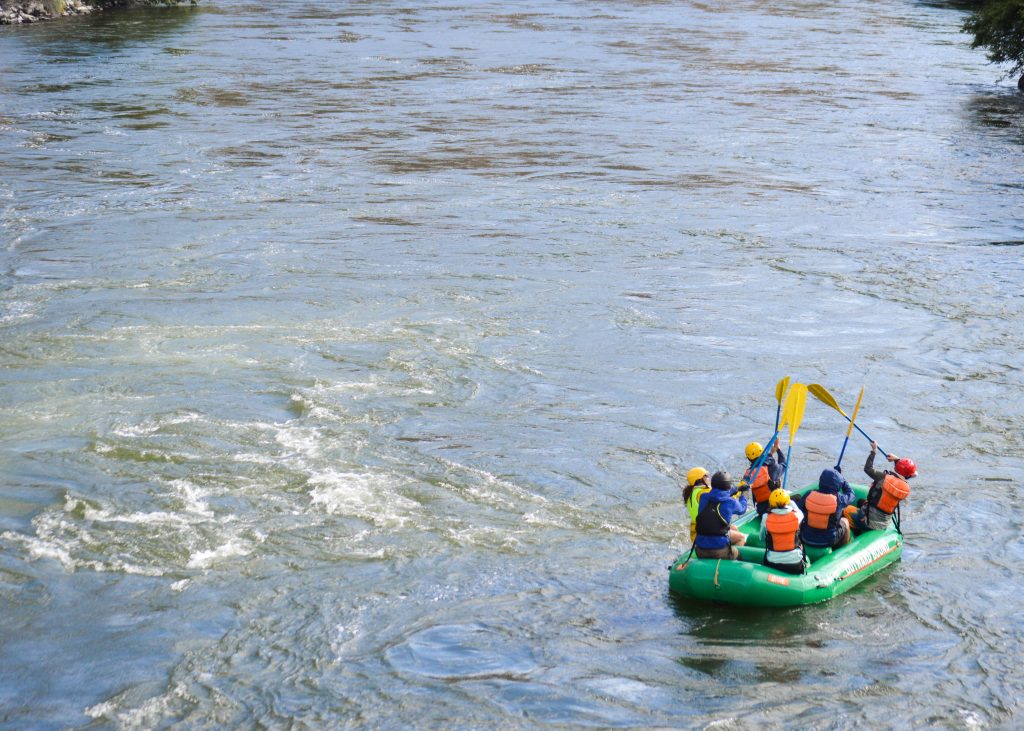
Photo taken on an Oregon Rafting & Service for LGBTQ+ Teens course, courtesy of Colby Blue.
After a week of rafting on the Deschutes River in central Oregon, on the ancestral lands of the Confederated Tribes of Warm Springs, the crew emerged from the backcountry to attend Pride in Portland! Intense experiences at Pride prompted challenging group conversations about race. “It was cool to see the students open up and challenge each other’s beliefs and thoughts,” Whitnee said.
Outward Bound courses each include an element of service, an experience that can serve to make connections between what service means within the context of the crew, and what it means in broader community environments. Another culminating community experience might include volunteering at a queer resource center, Whitnee suggested.
Taking on Challenge and Discovery in a New Way
Aspects of the LGBTQ+ teen course have prompted Instructors towards deep reflection on their own approaches to teaching challenge and discovery. Whitnee Goode reflected that students on this course often have already been through many challenges and are already on a deep path of self-discovery. So the priority wasn’t so much to begin a journey of self-discovery for students but to create a space for them to connect with each other on their paths without the social pressure to do things they didn’t feel comfortable doing.
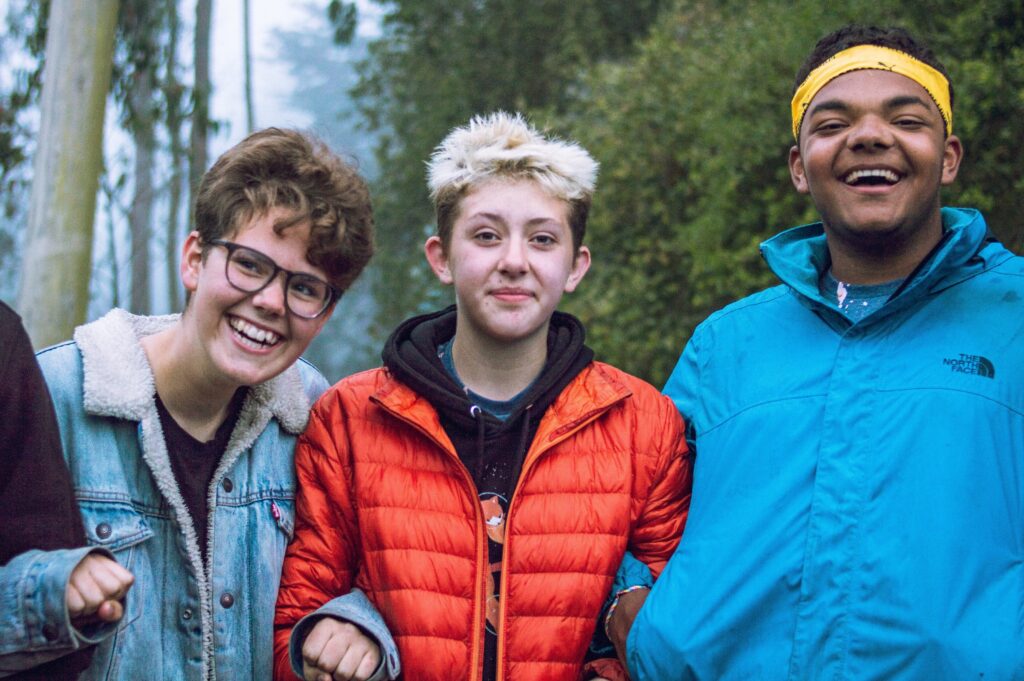
Oftentimes the greater challenge is to stand up and be vulnerable, Whitnee explained, to say, “this is too scary for me, this is beyond my learning zone, I’m going to sit it out.” Social and emotional challenges were highly valued in a way that became applicable to all students. “I would want other people to try at least one new thing on a trip” a student said. “For me, it was social. I know for other people on my trip, swimming a rapid was a new thing they tried.” The Instructors took on an especially attentive and responsive role, “We asked ourselves what the students needed for their course,” Whitnee said.
Heading Home
At the end of a course, crews often reflect that going home is the true ‘Outward Bound.’ It’s the time when the experience and learnings of the course meet the realities of life in a broader context. The crew had built a unique and nurturing community, and as an Instructor, Whitnee continues to compile resources to support students in the sometimes challenging transition on the other side of the course. “The drive to my house from the airport after hugging goodbye left me feeling empty” a student reflected. “After getting so close to people who lived across the country from me, and knowing that I possibly wouldn’t see them again was heartbreaking frankly. However, luckily I’ve stayed in close contact with the five other people I was very close to…I loved everyone on that trip and am so incredibly grateful for the experience.”
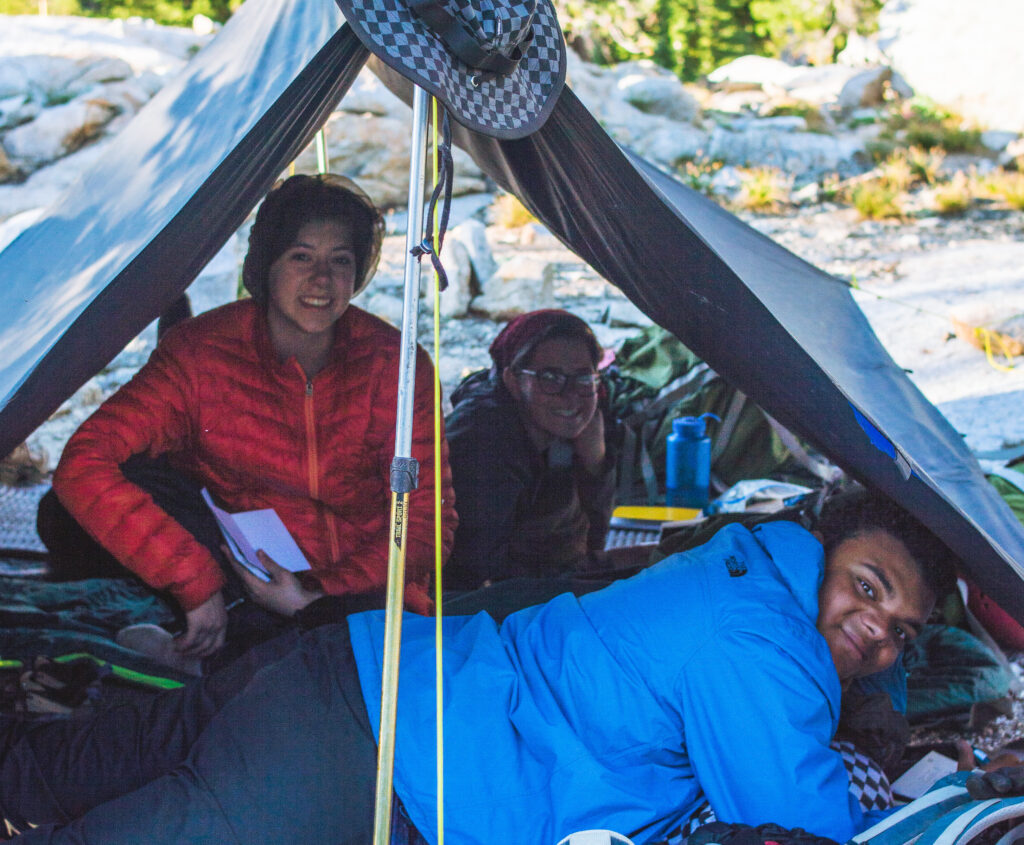
Two of the course’s Instructors were LGBTQ+, along with the logistics manager who supported the course. This created a profound experience of cross-generational mentorship that also impacted the Instructors deeply. Whitnee reflected, “there was no part of that course that was not rewarding and amazing.”
About the Author
Nora Spicer has instructed backpacking and canoeing courses at the Hurricane Island Outward Bound School since 2014. She has an MA in Environmental History from Harvard University and teaches Place-based US History (honoraspicer.com).
OTHER POSTS YOU MAY LIKE
Read More
Read More
Read More




